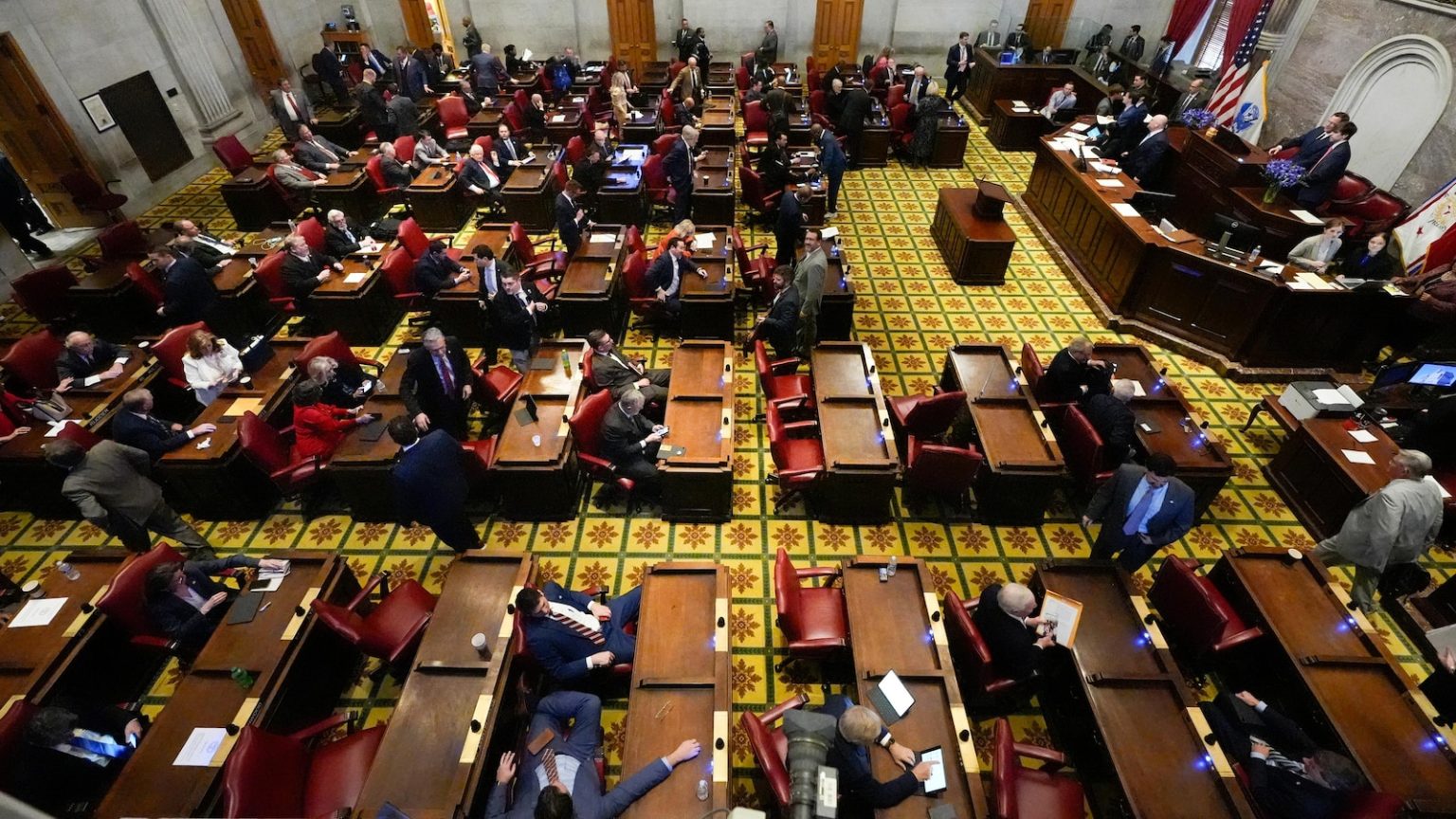In Ohio, Republican committee member Sabrina Warner resigned after voters approved an amendment to the state constitution guaranteeing access to abortion and reproductive health care. Warner, a staunch abortion opponent, felt she could no longer uphold the constitution she had sworn an oath to protect. This incident highlights a growing trend of political leaders refusing to take oaths or recite the Pledge of Allegiance due to controversial issues such as abortion rights, gun control, and racial equality.
In Tennessee, Democratic Rep. Justin Jones declined to lead the pledge during a legislative session, citing his opposition to his Republican colleagues’ focus on issues like targeting the LGBTQ+ community rather than addressing gun control. Jones’ refusal sparked outrage among Republicans, with one calling it a “disgrace” and demanding his resignation. This incident echoes a similar one in 2001 when Rep. Henri Brooks refused to recite the pledge, citing her ancestors’ enslavement by the colonies represented by the American flag.
Former President Donald Trump recently refused to sign a loyalty oath in Illinois, a pledge he had previously signed during his presidential runs in 2016 and 2020. Trump’s refusal to sign the oath this time may be linked to ongoing lawsuits seeking to bar him from the ballot due to his role in the January 6, 2021, attack on the U.S. Capitol. This incident raises questions about the consequences of declining to take an oath of office, which can result in being unable to hold an elected position.
In Missouri, Secretary of State Jay Ashcroft and State Sen. Rick Brattin have expressed concerns about taking oaths of office if voters approve initiatives to enshrine abortion rights in the state constitution. Ashcroft stated that he would resign if he could not uphold the constitution, while Brattin raised the issue of swearing an oath to protect the rights of the unborn. Similar concerns were expressed at the federal level in the Dobbs case, which overturned Roe v. Wade, with opponents arguing that respecting the Constitution is paramount.
Overall, these incidents reflect a growing polarization in American politics, where elected officials are increasingly conflicted about upholding their oaths in the face of contentious issues. The refusal to recite the Pledge of Allegiance or take oaths of office highlights deep divisions over issues like abortion, gun control, and racial equality. These conflicts underscore the challenges of governing in a politically charged environment where adherence to constitutional principles is questioned and the consequences of refusing to uphold oaths are scrutinized.









